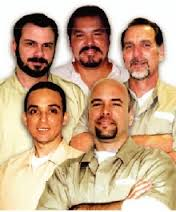 CIA Fooled by Massive Cold War Double-Agent Failure
CIA Fooled by Massive Cold War Double-Agent Failure
All recruits in East Germany, Cuba, and Russia fooled agency
BY: Bill Gertz, Washington Free Beacon
The CIA was fooled by scores of double agents pretending to be working for the agency but secretly loyal to communist spy agencies during the Cold War and beyond, according to a former CIA analyst, operations officer, and historian.
The large-scale deception included nearly 100 fake CIA recruits in East Germany, Cuba, as well as the Soviet Union (and later Russia) who supplied false intelligence that was passed on to senior U.S. policymakers for decades.
“During the Cold War, the Central Intelligence Agency bucked the law of averages by recruiting double agents on an industrial scale; it was hoodwinked not a few but many times,” writes Benjamin B. Fischer, CIA’s former chief historian.
“The result was a massive but largely ignored intelligence failure,” he stated in a journal article published last week.
The failure to recognize the double agents and their disinformation designed to influence U.S. policies “wreaked havoc” on the agency, Fischer wrote in the International Journal of Intelligence and Counterintelligence.
Fischer stated that the failure to prevent the double agent deception was dismissed by the CIA as insignificant, and that congressional oversight committees also did not press the agency to reform its vetting processes.
Fischer was a career CIA officer who joined the agency in 1973 and worked in the Soviet affairs division during the Cold War. He later sued the agency in 1996, charging he was mistreated for criticizing the agency for mishandling the 1994 case of CIA officer Aldrich Ames, a counterintelligence official, who was unmasked as a long time KGB plant.
Critics have charged the agency with harboring an aversion to counterintelligence—the practice of countering foreign spies and the vetting of the legitimacy of both agents and career officers. Beginning in the 1970s, many in the CIA criticized counter-spying, which often involved questioning the loyalties of intelligence personnel, as “sickthink.”
The agency’s ability to discern false agents turned deadly in 2009 when a Jordanian recruit pretending to work for CIA killed a group of seven CIA officers and contractors in a suicide bombing at a camp in Afghanistan.
Feature continues here: CIA’s Total Failure




